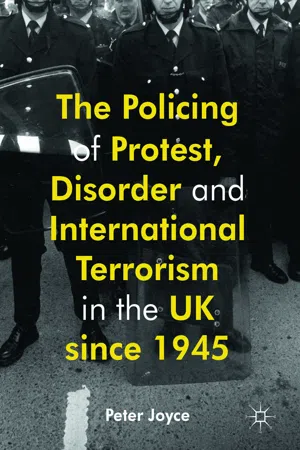Among the wider general public (i.e. those who are not members of political parties), affinity to a political party is an important determinant of political engagement, including voting (Hansard Society, 2014: 26). Thus, the decline of the first will inevitably result in the reduction of the second. This section examines the extent to which the general public engage with election contests.
General Elections
General elections are an especially important indicator of active citizenship and traditionally a high proportion of citizens felt that they had a duty to vote. Although the majority of the general public subscribe to this view (in 2013, 57% accepting that they had a duty to vote), this figure was considerably lower than the 76% who expressed this opinion in 1987 or the 68% who agreed with this proposition in 1994) (Simpson and Phillips, 2015: 137).
Popular perceptions of this sense of civic duty are reflected by participation in general election contests (as measured by voter turnout).
In 1950, the turnout was 83.9% and in 1951 was 82.6%. In subsequent general election contests held in 1955, 1959, 1964 and 1966, voter turnout exceeded 75% and although it was reduced to a figure of around 72% in the 1970 general election, it rose to 78.8% in the February 1974 contest. Turnout was reduced to 72.8% in the October 1974 general election but remained in excess of 75% in 1979, 1987 and 1992 (although it fell to 72.7% in 1983 Joyce, 2004, passim).
However, towards the end of the twentieth century, voter participation declined. Turnout in the 1997 general election was 71.4%, the lowest figure since that of 1945. Subsequently, the 2001 UK general election witnessed the lowest turnout in national contests since 1918: below 60% (59.4%) of those eligible to vote exercised their right to do so and the Labour Party’s alleged landslide victory was based on below one eligible voter in four supporting them at the polls (Joyce, 2002: 44). The extent of disengagement from conventional politics in this campaign in which almost 5 million fewer electors voted than in the previous contest held in 1997 (31,286,284 compared with 26,368,530) (Joyce, 2004: 396 and 407) gave rise to perceptions of a profound ‘crisis in democratic politics in Britain’ (Whiteley et al. 2001: 786) or what has been termed ‘disengagement from formal democracy’ (Kennedy, 2006: 16). In later twenty-first-century contests, voter participation marginally improved – in 2005 (turnout was 61.4%), in 2010 (65%) and 2015 (66%) – but failed to reach the high levels of citizen engagement of the 1950s and 1960s. Studies conducted in 2012 and 2013 indicated that the proportion of those who would certainly vote fell to 41% and that only 42% claimed they were ‘fairly interested’ in politics (Hansard Society, 2014: 33). However, the imminence of a general election caused an increase in the public’s interest in politics (whereby 50% claimed they were ‘very’ or ‘fairly’ interested in politics) (Hansard Society, 2014: 33).
Although reduced levels of voter participation in general election contests might create space for protest to assume a more prominent role in political activity, it has been observed that membership of the SNP, UKIP and the Green Party has increased ‘markedly’ in recent years and this was mirrored by the electoral support obtained by these parties in the 2015 general election: UKIP’s 3.8 million votes substantially outpolled the 2.4 million obtained by the Liberal Democrats (which was the junior partner in the 2010 coalition government), the SNPs 1.5 million elected 56 of Scotland’s 59 MPs and the Green’s 1.2 million votes was a record for that party (figures adopted from BBC News, 2015).
This situation indicated that for many people, political activity was conducted through what were once regarded as ‘minor parties’ enabling the 2015 election to be stylised as anti-establishment rather than anti-political (Flinders, 2015: 242). Electoral support for political parties other than the traditional ‘main’ ones could be interpreted as an indication of the continued vitality of conventional political activity as opposed to a rejection of the concept of representative democracy that had been put forward of a feature of the 1997 and subsequent electoral contests.
